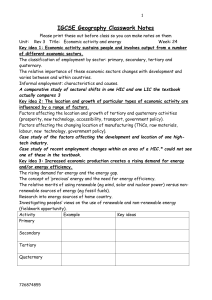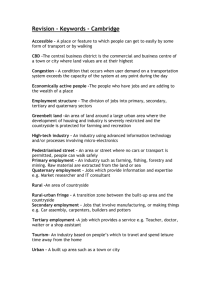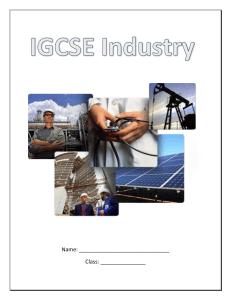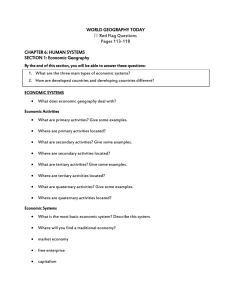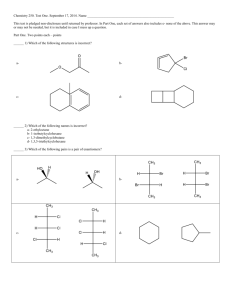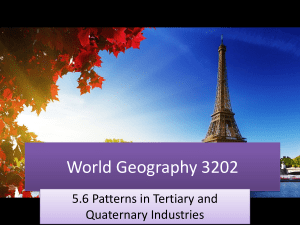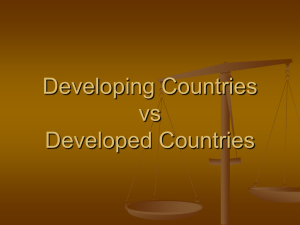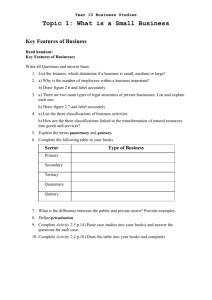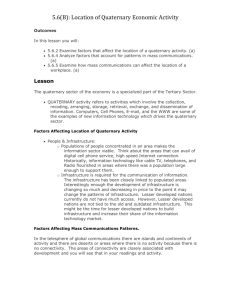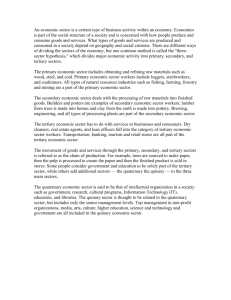Resources and Economies
advertisement
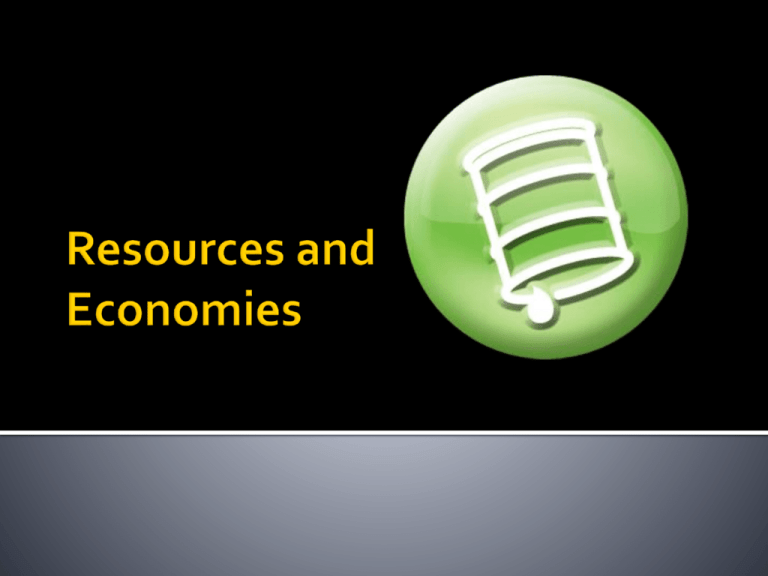
Materials in the natural environment that people value and use to satisfy their needs. In this class we are interested in…. 1. How people use world resources. 2. Where resources are located. 3. How resources are distributed. Materials in the natural environment that people value and use to satisfy their needs and wants. Give some examples of natural resources you use on a daily basis. Now… how would you need to adjust if that resource was no longer available? Regenerated or replaced by the environment Geothermal Energy: produced from the earth’s internal heat Cannot be replaced once used Fossil Fuels: formed by ancient plant and animal remains (over millions of years) Unevenly spread around the world Likely to run out Causes pollution Cost of gas… $1.95 a gallon United States $1.95 Spain $4.55 Italy $5.96 France $5.54 Denmark $5.93 Saudi Arabia $0.91 Egypt $0.65 Nigeria $0.38 Venezuela $0.12 What is a natural resource? Discuss with a partner What are the two main categories of resources? Discuss with a partner Since there is not an unlimited amount of resources how do we get the things we need? Economic Activities: what people do in order to acquire the things they need and the luxuries they desire. 4 categories ▪ Primary ▪ Secondary ▪ Tertiary ▪ Quaternary 1. Primary Economic Activities: rely directly on natural resources Examples: fishing, forestry, mining, farming, hunting/gathering, herding Subsistence Farming VS Commercial Farming 2. Secondary Economic Activities: people use raw materials to produce new products of greater value Examples: pressing wheat to make flour, manufacturing Cottage Industry VS Commercial Industry 3. Tertiary Economic Activities: do not directly gather or process raw materials – instead they pursue activities that serve others Examples: doctors, salespeople, truck drivers, firefighters, police 4. Quaternary Economic Activities: acquisition, processing, and sharing of information Examples: education, government, information processing, research, Lawyers What is the difference between a primary and a secondary economic activity? What is a natural resource? What is the difference between renewable and non renewable? What are some things countries are doing to prepare for a future with less oil? The earth’s resources are not evenly distributed around the world Affects: where people live, economic activities, trade, and leads to war. Exports: goods sent out of the country Imports: goods brought into the country Deficit = our businesses lose profits https://www.youtube.com/watch?v=FOYcpcV IZMs 1. Traditional Economy – families produce what they need - (personal use/little trade) 2. Market Economy – (Free enterprise) – Capitalism (United States) Private individuals/groups decide what to produce, how much to produce, and at what price Law of supply and demand Command Economy – controlled by a single, central government Economic decisions made by government leaders Decisions made to achieve social or political goals (Communism) Mixed Economy – mixture of all three Socialism Government should run some industries Government should provide some goods and services To pay for services, usually impose high taxes Read pages 115 – 119 Answer the following section 2 assessment questions from page 119. 2, 3, 4 What factors affect the location of different types of economic activities? How does the distribution of resources affect global trade patterns? How do GDP and standard of living differ between the developed and developing nations? What factors affect the location of different types of economic activities? Primary can be found where natural resources can be gathered. Secondary will be found near raw materials, a market to buy the goods and near a labor force. Tertiary is near people who need the service. Quaternary will be found in modern economies and tend to be near a skilled work force. How does the distribution of resources affect global trade patterns? Countries export what they have in abundance and seek out imports of the items they lack. How do GDP and standard of living differ between the developed and developing nations? Developed has a high standard of living and stronger GDP’s than the developing world. 1. 2. 3. 4. 5. 6. 7. Define the term natural resource. What is geothermal energy? Compare and contrast renewable and nonrenewable resources. List the 4 economic activities Is having a Deficit a bad thing when it comes to trade? What factors impact the location of different types of economic activities? How does the distribution of resources impact global trade patterns?
